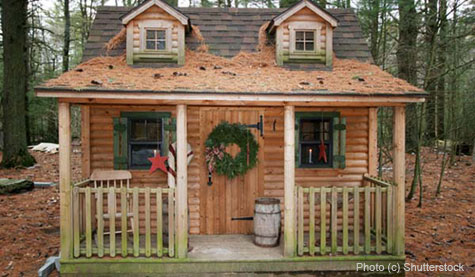Oikos (Home) for the Holidays
by John C. Ryan

Eight years ago in a dreary November, I moved to Seattle to start a new job, in a city where I hardly knew a soul. Unlike most newcomers to the Northwest, I moved here in an easterly direction, from across the Pacific. I had been living in Indonesia, a nation with grinding poverty and longstanding repression of basic freedoms. Yet oddly enough, Indonesians often seemed happier and more alive than people in my own country.
A basic concept in Indonesia is jam karet, literally “rubber time.” It means that time is flexible, things happen when they happen, there’s no need to rush. In part, it reflects the chaos of megacities like Jakarta, where I lived. Getting across a town as big as New York City, but with no subway or orderly street pattern, can take hours, whether you’re lounging in an air-conditioned taxi, crammed into a belching three-wheeled bemo, or hunched over in a careening bus not designed for a westerner’s six-foot frame.
But jam karet is also a reflection of basic cultural values. Indonesians generally spend less of their time keeping up with the Sutrisnos, and more on cementing relationships with those around them, spending time with family, sitting with friends and neighbors on the street corner while smoking those infernal clove cigarettes. If you leave out the cigarettes, these activities are just the sort that holidays are supposed to be about.
Moving from this sunny place on the equator to Seattle at the start of a drizzly Northwest winter was a shock to my system. But there was a bigger cultural shock of coming back to my own country at the beginning of the holiday season. A time of festivity and goodwill, of course, but what I noticed most of all in my first American holiday season in two years was the orgy of shopping. Everywhere people were buying things or sitting in traffic on their way to buying things. An alien anthropologist might look at a downtown Seattle street in December and think that humans were just the worker-slaves used as docile porters by highly intelligent Bon Marché and Nordstrom bags. It was hard for me to share in the joy of holiday shopping having just returned from a place where people did much less shopping and seemed much happier for it. I couldn’t help thinking that my fellow Americans were so busy buying things for each other that they had no time for each other, and that saddened me.
But it was good to be home – in my home country at least, if not my home town – surrounded by the familiar. Yellow school buses. Blue mail boxes. Uncensored news. Supermarkets full of comfort foods. (I once went to the Raffles Hotel, one of Southeast Asia’s swankiest, just to pay $5 for a fresh bagel with cream cheese, flown in direct from New York. I knew there was something wrong about the whole concept, but that bagel tasted unbelievably good at the time.) I even enjoyed looking at the window displays of the department stores whose bags seemed to be enslaving the human race. The troubling thing about my home land and its lifestyle was that I knew it to be doing more to harm my home planet than any other nation in history. Among other things, I knew that we Americans, five percent of the earth’s people, were putting out one-fifth of the greenhouse gases that are disrupting the entire planet’s climate.
Being home for the holidays got me thinking about oikos, the Greek word for home, and the root word of both ecology and economy. Shouldn’t we use this homecoming time to start caring for our collective home, to reconcile the two descendants of oikos? Isn’t this the time to start making peace, not war, on the earth?
It’s not easy to be oikos for the holidays, with every advertisement, store front and elected official urging us on to greater consumer confidence and truly patriotic spending levels. Yet most of us know deep down that our time and our love are better gifts than anything we can buy. Perhaps we haven’t grasped what an amazing gift it would be to tell our grandchildren that we almost lost the world but held back before it was too late. We saw how we were hurting the sky and everything underneath it and decided to stop. Or what a gift it would be to ourselves not to have to tell them, “We could have left you a decent world but decided you weren’t worth it.”
In this, one of the warmest years in Earth’s recorded history, I’ll still go holiday shopping and buy what I need to make my loved ones happy. But I’ll try to remember that, yes, Virginia, the best things in life are free, and that the atmosphere that makes all life possible is priceless. And that every time I reduce my consumption of energy or stuff, I’m giving a gift to myself, my loved ones and every living thing on Earth for decades to come.
John C. Ryan is a Fellow of the New America Foundation and author of “Over Our Heads: A Local Look at Global Climate.” This article is courtesy the Center for a New American Dream’s bi-monthly syndicated column which explores the connections between consumption, quality of life, environment and values. For more information about the Center, please visit www.newdream.org.
|

